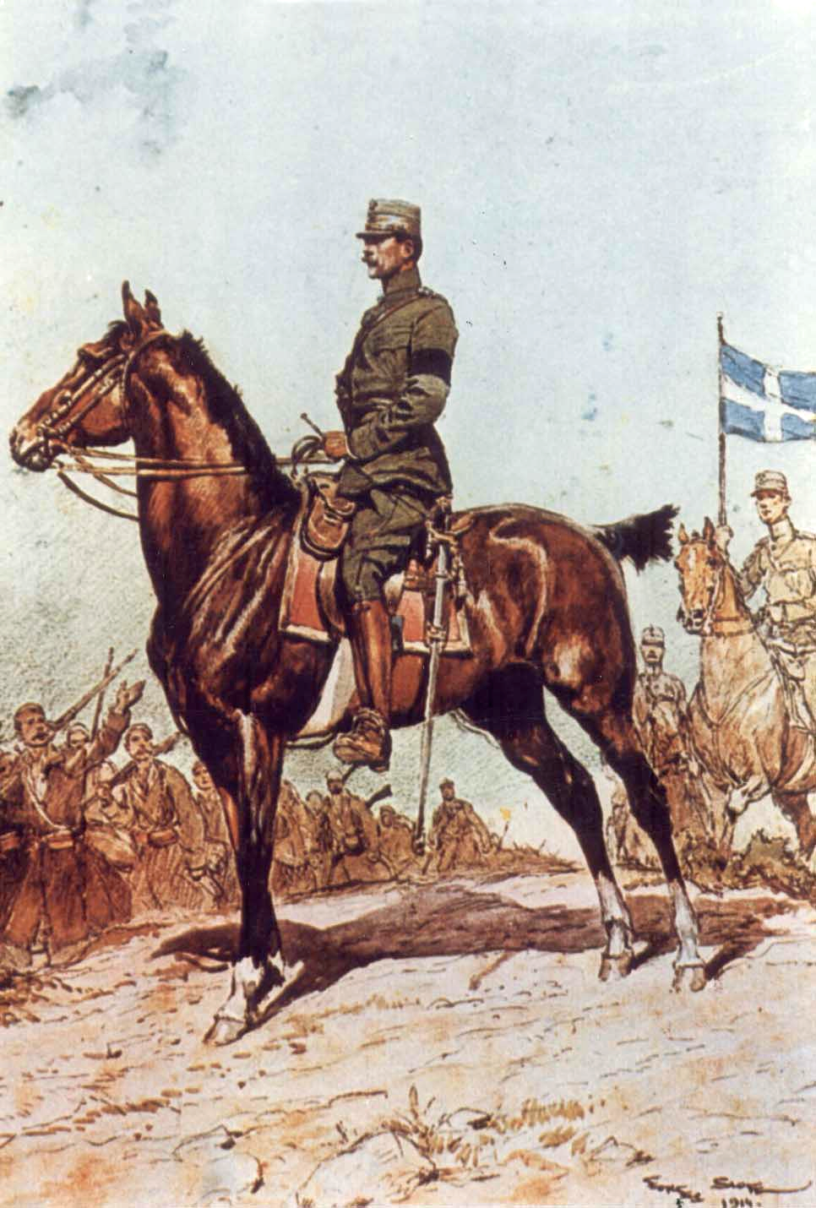5 most famous Greek Kings
5 most famous Greek Kings
Greece achieved its independence from the Ottoman Empire in 1832 and even though the people had tried to establish a democratic system right away, it still faced challenges. The Kingdom of Greece was ruled by the House of Wittelsbach between 1832 and 1862 and by the House of Glücksburg from 1862 to 1924, temporarily abolished during the Second Hellenic Republic, and from 1935 to 1973, when it was permanently abolished and replaced by the Third Hellenic Republic. Only the first king, Otto, was King of Greece. His successor, George I, was King of the Greeks, as were all other modern monarchs. There is some debate over the exact time of the ancient Greek period. Some historians say that it began during the Dark Ages and lasted until 600 AD, but other historians believe that it continued until the death of Alexander the Great in 323 BC, and then moved into the Hellenistic period, although these two periods are generally not considered distinct from one another. Ancient Greek civilization and culture had a huge impact on the Roman Empire and is still considered the foundation of Western civilization. Politics, art, education, architecture, language, and philosophy are all considered to be the pillars of ancient Greek civilization. Ancient Greece has one of the richest cultural histories of all civilizations along with many great kings who worked hard to build the legacy that we know today. Over the years, Greece had a total of nine kings; let’s take a look at the 5 most famous Greek Kings.
1. Constantine I
Reigned: 1913 – 1917
Constantine I was commander-in-chief of the Hellenic Army during the unsuccessful Greco-Turkish War of 1897 and led the Greek forces during the successful Balkan Wars of 1912–1913, in which Greece expanded to include Thessaloniki, doubling in area and population. He succeeded to the throne of Greece on 18 March 1913, following his father’s assassination.
His disagreement with Eleftherios Venizelos over whether Greece should enter World War I led to the National Schism. Constantine forced Venizelos to resign twice, but in 1917 he left Greece, after threats by the Entente forces to bombard Athens; his second son, Alexander, became king. After Alexander’s death, Venizelos’ defeat in the 1920 legislative elections, and a plebiscite in favour of his return, Constantine was reinstated. He abdicated the throne for the second and last time in 1922 when Greece lost the Greco-Turkish War of 1919–1922 and was succeeded by his eldest son, George II. Constantine died in exile four months later, in Sicily.
2. Alexander
Reigned: 1917 – 1920
Alexander was King of Greece until his death at the age of 27 from the effects of a monkey bite. He was the second son of King Constantine I, born in the summer palace of Tatoi on the outskirts of Athens. He succeeded his father in 1917, during World War I, after the Entente Powers and the followers of Eleftherios Venizelos pushed Constantine I and his eldest son Crown Prince George, into exile. Having no real political experience, the new king was stripped of his powers by the Venizelists and effectively imprisoned in his palace. Venizelos, as prime minister, was the effective ruler with the support of the Entente. Though reduced to the status of a puppet king, Alexander supported Greek troops during their war against the Ottoman Empire and Bulgaria. Under his reign, the territorial extent of Greece considerably increased, following the victory of the Entente and their Allies in the First World War and the early stages of the Greco-Turkish War of 1919–1922.
Alexander controversially married the commoner Aspasia Manos in 1919, provoking a major scandal that forced the couple to leave Greece for several months. Soon after returning to Greece with his wife, Alexander was bitten by a domestic Barbary macaque and died of sepsis. The sudden death of the sovereign led to questions over the monarchy’s survival and contributed to the fall of the Venizelist regime. After a general election and a referendum, Constantine I was restored to the throne.
3. George I
Reigned: 1863 – 1913
George I was King of Greece from 1863 until his assassination in 1913. Originally a Danish prince, he was born in Copenhagen and seemed destined for a career in the Royal Danish Navy. He was only 17 years old when he was elected king by the Greek National Assembly, which had deposed the unpopular former king Otto. His nomination was both suggested and supported by the Great Powers: The United Kingdom of Great Britain and Ireland, the Second French Empire and the Russian Empire. He married Grand Duchess Olga Konstantinovna of Russia in 1867 and became the first monarch of a new Greek dynasty.
George’s reign of almost 50 years, the longest in modern Greek history, was characterized by territorial gains as Greece established its place in pre-World War I Europe. Britain ceded the Ionian Islands peacefully in 1864, while Thessaly was annexed from the Ottoman Empire after the Russo-Turkish War. Greece was not always successful in its territorial ambitions; it was defeated in the Greco-Turkish War. During the First Balkan War, after Greek troops had captured much of Greek Macedonia, George was assassinated in Thessaloniki.
4. Otto
Reigned: 1832 – 1862
Otto was a Bavarian prince and the first King of Greece in 1832. The second son of King Ludwig I of Bavaria, Otto ascended the newly created throne of Greece while still a minor. His government was initially run by a three-man regency council made up of Bavarian court officials. Upon reaching his majority, Otto removed the regents when they proved unpopular with the people, ruling as an absolute monarch. Eventually, his subjects’ demands for a Constitution proved overwhelming, and in the face of an armed insurrection, Otto granted a constitution in 1843.
Throughout his reign, Otto was unable to resolve Greece’s poverty and prevent economic meddling from outside. Greek politics in this era were based on affiliations with the three Great Powers that had guaranteed Greek independence. Otto’s ability to maintain their support was key to his remaining in power.
To remain strong, Otto had to play the interests of each of the Great Powers’ Greek adherents against the others, while not irritating the Great Powers. When Greece was blockaded by the British Royal Navy in 1850 and again in 1854, to stop Greece from attacking the Ottoman Empire during the Crimean War, Otto’s standing amongst Greeks suffered. As a result, there was an assassination attempt on Queen Amalia, and finally, in 1862 Otto was deposed while in the countryside. He died in exile in Bavaria in 1867.
5. George II
Reigned: 1922 – 1924
George II was a paternal first cousin of Prince Philip, Duke of Edinburgh, and a maternal nephew of Wilhelm II, the last German Emperor. He was born at the royal villa at Tatoi, near Athens, the eldest son of Crown Prince Constantine of Greece and his wife, Princess Sophia of Prussia. George pursued a military career, training with the Prussian Guard at the age of 18, then serving in the Balkan Wars as a member of the 1st Greek Infantry. When his grandfather was assassinated in 1913, his father became King Constantine I and George became the crown prince. He succeeded to the Greek throne on 27 September 1922.
Following a failed royalist coup in October 1923, the Revolutionary Committee asked him to leave Greece while the National Assembly considered the question of the future form of government. He complied and, although he refused to abdicate, he departed on 19 December 1923 for exile in his wife’s home nation of Romania. When a republic was proclaimed on 25 March 1924, he was officially deposed and stripped of his Greek nationality. George II died of arteriosclerosis on 1 April 1947, after he was discovered unconscious in his room at the Royal Palace in Athens.
Planning a trip to Paris ? Get ready !
These are Amazon’s best-selling travel products that you may need for coming to Paris.
Bookstore
- The best travel book : Rick Steves – Paris 2023 – Learn more here
- Fodor’s Paris 2024 – Learn more here
Travel Gear
- Venture Pal Lightweight Backpack – Learn more here
- Samsonite Winfield 2 28″ Luggage – Learn more here
- Swig Savvy’s Stainless Steel Insulated Water Bottle – Learn more here
Check Amazon’s best-seller list for the most popular travel accessories. We sometimes read this list just to find out what new travel products people are buying.













